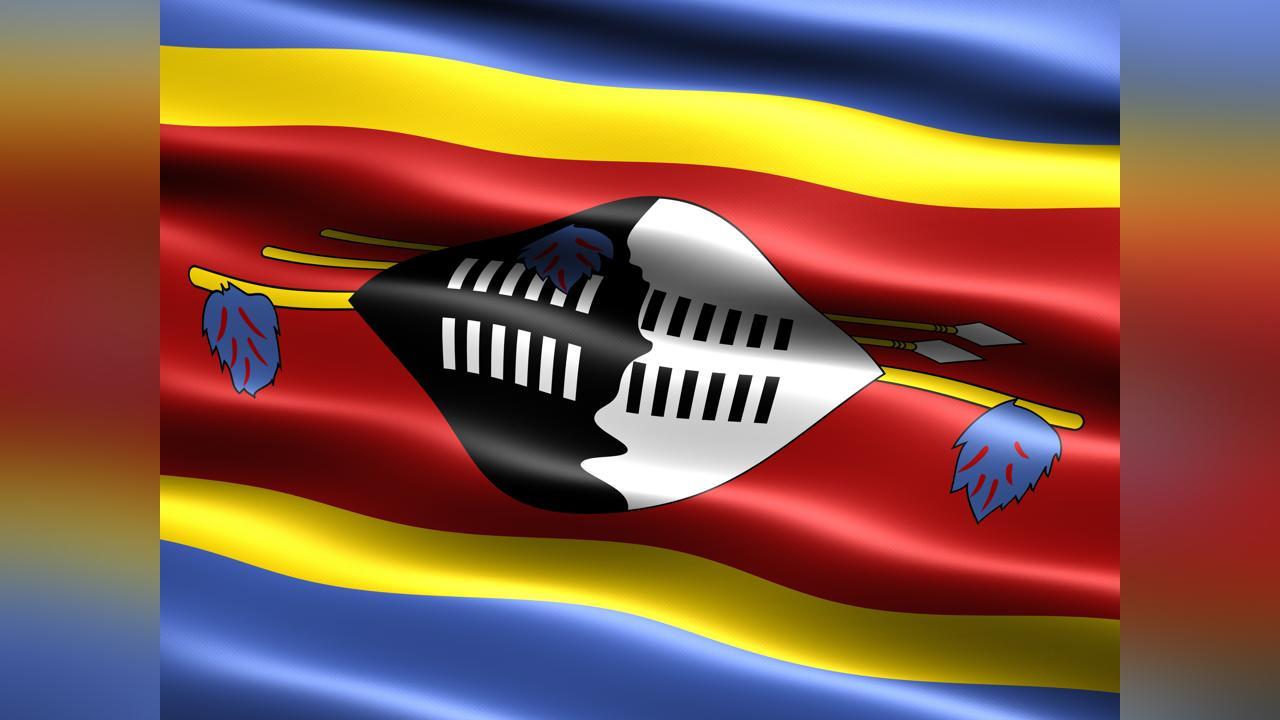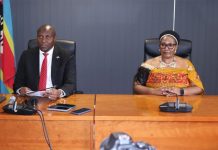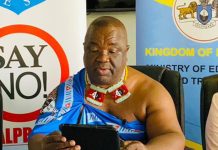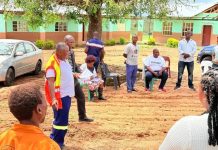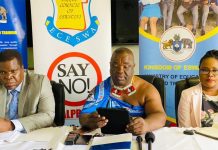Africa-Press – Eswatini. Let’s face it.We are a deeply fragmented and ailing society that urgently needs unity and healing.
No one can heal us as nation except we do it ourselves. In order to achieve this we need to discard negative, self-destructive attitudes such as being self-centred, cavalier, egocentric and intolerant of one another. The existing discord between the governing and the governed is destroying our nation. It is requisite and essential for us to collectively work towards narrowing the glaring schism that so pitifully divides us as society. It is crucial that we embrace tolerance towards differing perspectives and, above all, participate in a genuine and inclusive political dialogue or conversation if we seek to solve our differences. By doing so, we can openly and sincerely work together, with unwavering dedication to tackle our disparities and discover enduring resolutions – all before it becomes too late.
This message is of utmost importance for every individual in our troubled kingdom – from our leaders to the grassroots. It is crucial that we seriously ruminate and take action on this urgent matter if we truly desire to build a strong and united society. There are numerous factors that require thorough examination, which are contributing to our nation’s profound anger, conflict, lack of tolerance and a consuming, excessive desire for revenge. Regrettably, we seem to lack the ability or willingness to address our internal issues effectively and amicably.
As human beings, we are naturally susceptible to the influence of emotions. Our reactions and responses to various situations may vary greatly, but it is crucial to exercise self-control and approach disagreements and interactions with individuals who hold opposing views in a diplomatic manner.
Tolerance
Tolerance is the ability to respect and embrace the opinions, beliefs and practices of others, even when they differ from our own. It is a value which lies or rather, should lie at the heart of a harmonious and inclusive society. We live in a polarised world, where opinions and beliefs more often than not, clash at almost every turn. In our world, the concept of tolerance to differing views has taken on a renewed importance. We differ on and clash in our political beliefs. Socio-economically, we are at loggerheads. We seem to have the propensity to preach what we do not always practice. This and numerous other flaws, in many instances, has affected our ability to be tolerant of what each one stands for and believe in. Whichever way one might look at it, the concept of tolerance also plays or should play a crucial role in fostering harmony and the ability to peacefully live side by side free from conflict. By respecting the rights of others to hold different views, we can contribute to creating a more inclusive and respectful society.
It is crucial for me and you to understand that tolerance helps reduce conflicts and promotes peaceful coexistence among individuals and communities. That said, it is time to tackle today’s theme of this article. I must be candid and admit, though that this was and is a difficult and challenging topic to tackle which requires each reader to adopt an open mind as he or she peruses through it and not rush emotionally and headlong into berating me or hurl all sorts of expletives towards yours truly. The global world celebrated Workers Day (May Day) midweek this past week on Wednesday May 1, 2024.The country joined the global world in celebrating this important date. The celebrations were held at the Prince of Wales Sports Grounds in Mbabane.
Sadly, things did not go well as was anticipated… What transpired was a sad day for tolerance. Reports from the media (Eswatini Times) indicate that Prime Minister (PM) Russell Dlamini abruptly departed from the Prince of Wales Sports Ground after being denied the chance to speak to workers during the Workers’ Day celebrations. It is said that workers displayed such hostility that law enforcement had to use a stun grenade to prevent them from approaching the PM’s motorcade, which quickly drove him away from the Prince of Wales.
Historic
The newspaper report pointed out that the PMs presence at the May Day event was historic, marking the first time in the country’s history that the head of government participated in a Workers’ Day celebration. In his delegation were the Minister of Labour and Social Security, Phila Buthelezi and the Minister of Tourism and Environmental Affairs, Jane Simelane.
As he was about to address the large crowd of workers, the sound system was disconnected. When senior police officials attempted to investigate, they were met with resistance and instructed to step back. Sadly, the newspaper reported that the crowd became unruly and at that point, the workers had taken control of the event, while the union executive committee members were kept at a distance.
The unruly workers chanted slogans and danced near the tent where the prime minister and his dignitaries were seated. The police had to create a human barrier to prevent them from approaching the Cabinet members. Police officers, who were part of the prime minister’s security detail, were frequently seen communicating with him, presumably regarding his safety. He remained composed until a few projectiles were thrown by the workers. Shortly after, he stood up and made his way to his destination. The rest, as the wise say, is history..
Allow me to share my perspective. I kindly request your patience as I express my thoughts, despite the possibility of facing criticism from those who are unwilling to consider differing opinions. I am not bothered by this, though as I believe in the importance of freedom of expression, although it should be exercised with decency and respect. Fact: Freedom of expression is not absolute. The behaviour towards the PM and his associates was undeniably irresponsible, completely unacceptable, degrading and highly inappropriate. It is crucial for all rational and tolerant individuals in our society to strongly denounce the emotional reactions displayed by those involved in this disgraceful incident.
In this country, we are all guilty – from our leaders down to the grassroots – of lack of tolerance for differing views. That is a fact we cannot deny. Sadly, this had more often than not, manifested itself negatively in numerous instances in the past including the recent debacle involving some workers and the treatment the country’s prime minister was subjected to during the recent May Day celebrations
Complaints
It is widely known that we, as citizens, have numerous complaints about the way we are governed. While I am a strong critic of the government, I always strive to express my views in a fair and respectful manner, recognising that I am dealing with fellow human beings who should be approached with constructive engagement.To begin, I shall address our government and speak candidly about the reality we are facing in the country. The governing system we adhere to claims to be democratic, but in truth, this assertion holds little validity. Regrettably, we are predominantly not a democratic nation. Please kindly continue reading as I strive to justify my statement or claim. It is common knowledge that democratic nations possess specific qualities that distinguish them from other types of governments. Democratic countries are defined by principles such as freedom of speech, association, assembly, equality, justice and citizen participation in decision-making processes. As the Eswatini nation, can we genuinely affirm that we adhere to and implement these principles?
Let’s explore some key traits that define a democratic country:
The following are some of the prerequisites of a democratic country:
1. Rule of law: The adherence to the rule of law is of utmost importance in any country which claims to be a democratic nation. This should reflect a position that the government is bound by its Constitution and other laws and regulations that are applied equally to all citizens, including those in positions of power. Crucially, the Judiciary, which constitutionally is supposed to operate independently is one of the crucial components of a democracy. In a democratic country, the Judiciary plays a an important role in upholding the rule of law by ensuring that laws are administered fairly and in accordance with the Constitution. As a country can we honestly and without batting an eyelid say we subscribe to this?
2. Regular, free and fair elections: These are a fundamental pillar of a democratic system. Elections should be free from corruption, rigging of votes and unethical practices like buying of votes or employing bribery tactics such as buying of votes, coercing voters to vote for aspiring politicians with freebies like foodstuffs such as bags of rice, sponsoring soccer tournaments, etc. We’ve witnessed such immorral acts taking place during national elections.
3. The protection of citizens and individual rights is paramount: This is a key aspect of a democratic nation. Such fundamental rights and freedoms, including freedom of speech, assembly and religion, are enshrined in the constitution and should be fiercely safeguarded by institutions such as the Legislature, Judiciary and independent media.
4. A level playing political field: This is crucial for the flourishing of democracy. Allowing political parties and diverse viewpoints to contest for elections is a classic sign of a thriving democracy. Any democratic country should allow for the existence of political parties, be tolerant of a range of voices and opinions. This is a prerequisite for a vibrant political landscape where different perspectives can be heard and taken into consideration.
5. The separation of powers: The Executive, Legislature and Judiciary should be free from interference from the other arms of government.This prevents the abuse of power and maintains a system of checks and balances. Accountability and transparency in all forms of the responsibilities of the three arms of government is crucial. Do we practice this as a country?
6. articipation of citizens in the country’s governance: Citizens should be urged and allowed to engage in decision-making processes that impact their lives and welfare, such as through voting in elections, participating in public debates, for instance, concerning service delivery, economic matters such as tariff increases, skyrocketing consumer goods costs, etc.
That said, I leave it to each reader to make his or her own conclusions if we are democracy as some in our society claim. All I can say for now is that our track record of subscribing to democratic principles has always been found wanting.
It is now time to address the section of our populace that is aggrieved about the shenanigans of the administration. There is no denying that we, as a collective, are a deeply affected community. To speak frankly and without reservation, we are a nation filled with anger. Our population, encompassing both the employed and the unemployed, is enduring a relentless wave of oppressive political measures and an inhospitable socioeconomic climate.
Grievances
It is impossible to separate political matters from labour rights. Employees were given the opportunity to address these concerns when the prime minister visited during the May Day festivities. Regrettably, they squandered this chance by directing their grievances towards the PM and his group in a confrontational and hostile way. Regardless of their grievances, it was crucial for all parties to maintain a respectful and civil demeanour, rather than resorting to militant behaviour. The end does not and should not justify the means. No! Despite the undemocratic nature of the the government, it was and is essential to approach the PM and all who are in leadership positions – in spite of our grievances – in a peaceful and respectful manner, acknowledging his position as the head of government, an elder and a fellow human being.
Finally, may all those impacted by or implicated in the recent events choose to focus on the positive aspects, seek divine guidance for acceptance of diverse perspectives. Let us interact harmoniously regardless of our political and economic disparities. We are one Eswatini. Together, let’s strive for genuine and enduring peace. Let’s embrace tolerance. Violence or cruelty is never the answer.
Peace! Shalom! Wishing everyone a great weekend and week ahead.We are all created equal and must reject any notion of inequality. Let us learn from George Orwell’s ‘Animal Farm’ novel and avoid the trap of some being more equal than others. Let us practice tolerance… Wishing everyone a great Sunday and week ahead. Peace! Shalom!
Source: times
For More News And Analysis About Eswatini Follow Africa-Press


